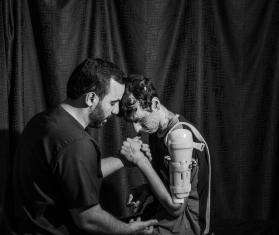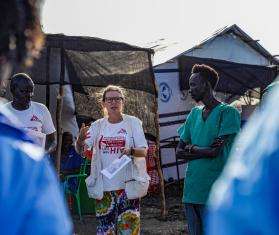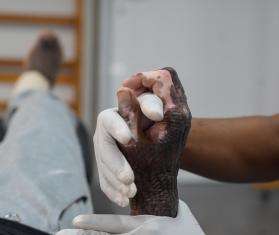The first quarter of 2024 was the deadliest since the UN began tracking armed group violence in Haiti. Between February and April, the number of patients arriving with gunshot wounds at MSF’s Tabarre trauma hospital surged from 60 to 100 per month, and we had to expand from 50 to 75 beds to meet the growing demand for surgery. Several major hospitals in Port-au-Prince closed due to mounting insecurity. In 2024, Haiti recorded 5,600 deaths and 2,200 injuries related to violence, a 17 percent increase compared to the previous year.
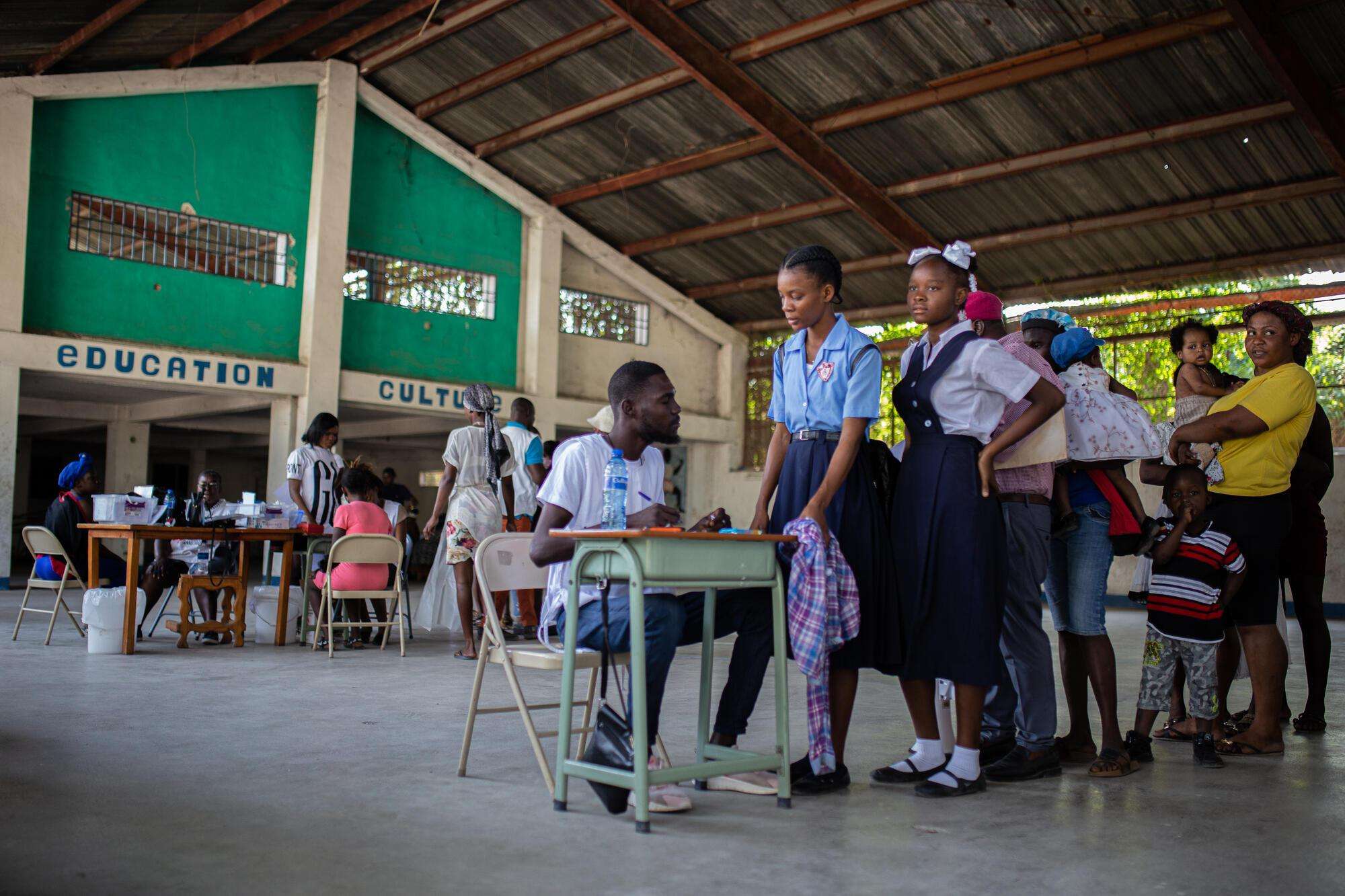
Haiti 2023 © Alexandre Marcou/MSF
Haiti
After a series of natural disasters and ongoing political and economic crises, Haiti’s health system remains precarious as instability continues to block access to care.
Haiti violence pushes MSF trauma hospital to its limits
May 5, 2025 - Extremely high levels of violence in Port-au-Prince, Haiti, may cause one of the last remaining trauma hospitals to reach its full capacity, making it unable to accept new patients. Tabarre Hospital, run by MSF, is one of the last hospitals in the capital city, where armed groups are coordinating attacks on several areas that were previously beyond their control. If the hospital’s maximum capacity is reached, it would create an even more desperate situation for the city’s residents, whose access to surgical care would be considerably reduced.
Our work in Haiti
As violence escalates and mass displacement continues in Haiti, Doctors Without Borders/Médecins Sans Frontières (MSF) delivers lifesaving treatment for trauma and burns, as well as care for victims and survivors of sexual violence and essential maternal and neonatal care.
%20(1)1213.jpg)
What's happening in Haiti?
Since 2021, political instability and armed group violence have reached intolerable levels in Haiti. OnFebruary 29, 2024, the situation deteriorated further when armed groups that had previously fought each other but had united under the Viv Ansanm (“Living Together”) alliance in late 2023, intensified attacks on the authorities, public institutions, and utilities, disrupting essential services—electricity, water, health care, education, and transportation—and leaving millions struggling to meet basic needs. Over the course of the year, armed groups gained control of approximately 85 percent of Port-au-Prince, turning the capital into a battleground, with gangs fighting the police and community self-defense groups. Local residents are often attacked based on their perceived loyalties or where they live.

How we're helping in Haiti
Mass displacement is deepening the humanitarian crisis in Haiti, with over 1 million people driven from their homes in the span of a single year. Many live in informal sites with limited access to water and sanitation facilities, which increases the risk of waterborne diseases. In August 2024, MSF provided treated water at 15 sites, trained site managers on water chlorination and hygiene, built or renovated latrines and emergency showers, and distributed hygiene kits. MSF’s mobile clinics treated people for a wide variety of conditions, including waterborne diseases such as acute watery diarrhea and scabies. In this volatile situation, MSF teams faced severe security threats and incidents that disrupted operations.
On November 11, during an attack on an MSF ambulance, two patients were executed and accompanying staff members were assaulted. In the following days, MSF ambulances were repeatedly stopped by police, who threatened staff with death and sexual violence. As the risks grew, we temporarily suspended most of our activities in Port-au-Prince on November 20, further reducing access to critical health care. We partially resumed activities on December 11.
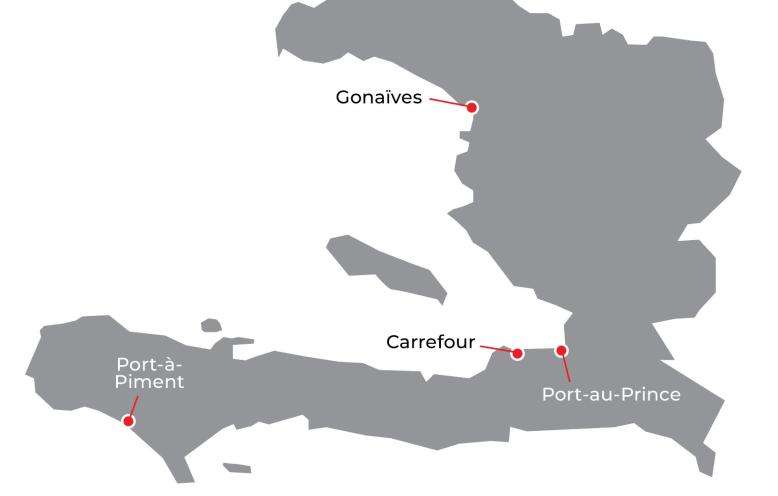
How we're helping
13,168,000
Liters of chlorinated water distributed
9,750
Surgical interventions
6,770
People treated for intentional physical violence
4,660
People treated for sexual violence
1,500
Births assisted
*Data from MSF International Activity Report 2024
More news and stories
Learn about MSF’s journalistic roots and our commitment to bear witness and speak out about the plight of the people we treat.
Learn about MSF’s journalistic roots and our commitment to bear witness and speak out about the plight of the people we treat.
